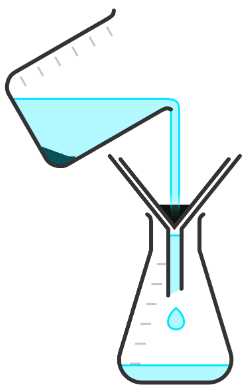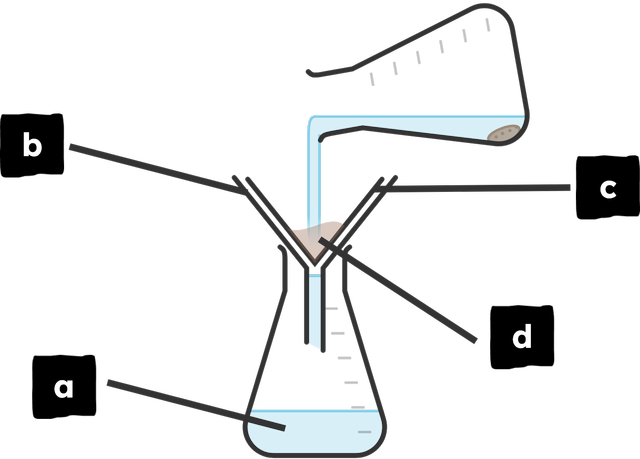Potable water: including sedimentation
I can explain what potable water is and describe how it can be obtained from groundwater and seawater.
Potable water: including sedimentation
I can explain what potable water is and describe how it can be obtained from groundwater and seawater.
These resources will be removed by end of Summer Term 2025.
Switch to our new teaching resources now - designed by teachers and leading subject experts, and tested in classrooms.
These resources were created for remote use during the pandemic and are not designed for classroom teaching.
Lesson details
Key learning points
- 'Potable' and 'pure' water are not the same substance.
- Water used in analysis must not contain any dissolved ions.
- The method used to obtain potable water depends on the water source.
- Sedimentation, filtration and chlorination are used to obtain potable water from groundwater and fresh water sources.
- Desalination of seawater creates potable water by distillation or reverse osmosis.
Keywords
Pure - A single element or compound that is not mixed with any other substance.
Potable - Water that is safe to drink.
Sterilisation - The process of killing bacteria and other living microorganisms.
Desalination - The process of removing dissolved salts from seawater.
Reverse osmosis - The movement of solvent through a semipermeable membrane by applying excess pressure on the solution. This process can remove dissolved solutes from water.
Common misconception
Pupils tend to think that all water is the same. Pupils tend to forget that non-visible substances are also found in water.
Stress that pure water only contains H₂O molecules. Other types of water may include varying amounts of dissolved salts, other solids or micro-organisms. Stress that microbes must be killed for water to be potable, but are too difficult to remove.
To help you plan your year 10 combined science lesson on: Potable water: including sedimentation, download all teaching resources for free and adapt to suit your pupils' needs...
To help you plan your year 10 combined science lesson on: Potable water: including sedimentation, download all teaching resources for free and adapt to suit your pupils' needs.
The starter quiz will activate and check your pupils' prior knowledge, with versions available both with and without answers in PDF format.
We use learning cycles to break down learning into key concepts or ideas linked to the learning outcome. Each learning cycle features explanations with checks for understanding and practice tasks with feedback. All of this is found in our slide decks, ready for you to download and edit. The practice tasks are also available as printable worksheets and some lessons have additional materials with extra material you might need for teaching the lesson.
The assessment exit quiz will test your pupils' understanding of the key learning points.
Our video is a tool for planning, showing how other teachers might teach the lesson, offering helpful tips, modelled explanations and inspiration for your own delivery in the classroom. Plus, you can set it as homework or revision for pupils and keep their learning on track by sharing an online pupil version of this lesson.
Explore more key stage 4 combined science lessons from the Separating substances unit, dive into the full secondary combined science curriculum, or learn more about lesson planning.

Licence
Starter quiz
6 Questions


filtrate
funnel
filter paper
residue
Exit quiz
6 Questions
A grid acts like a sieve, removing large insoluble objects.
Small, insoluble particles 'settle out', forming a sediment.
Very small particles are removed by passing through fine layers.
Microbes are killed.


